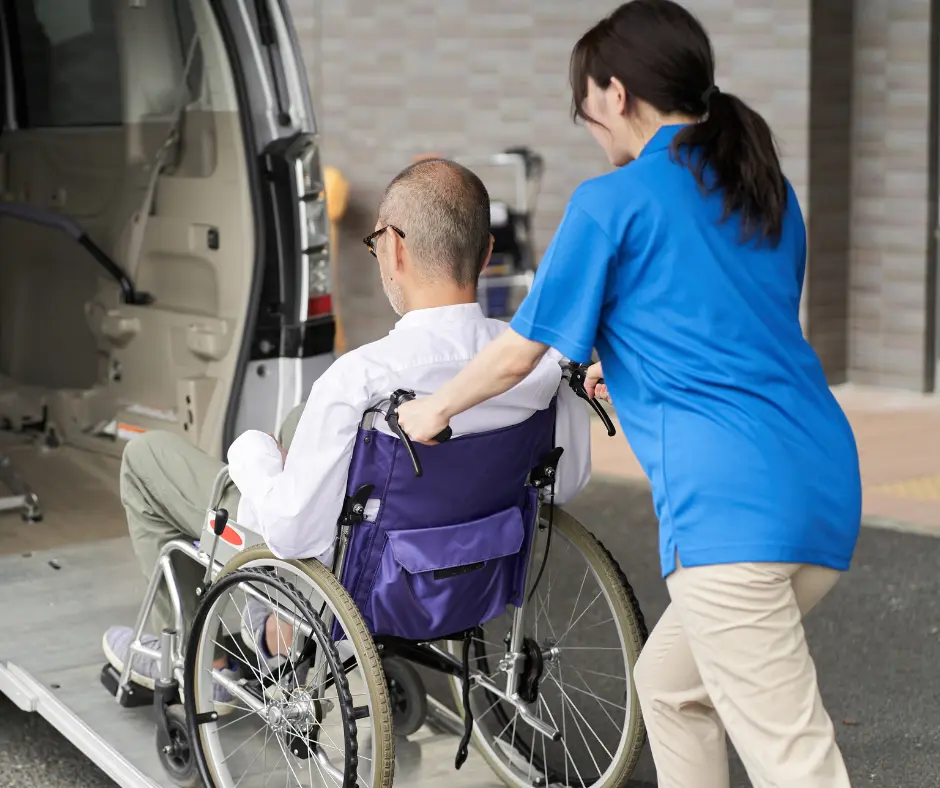When the comfort of home becomes the forefront of healing and wellness, in-home care for the disabled emerges as a beacon of hope. Embarking on this journey requires understanding, compassion, and an in-depth guide to navigate the complexities involved. This comprehensive guide aims to illuminate the path for those seeking to enhance the living standards of their loved ones in the warmth of their home.
Understanding In-Home Care for the Disabled
At its core, in-home care for the disabled encompasses a wide spectrum of services, tailored to meet the unique needs of each individual right at their doorstep. From personal care assistance to specialized medical services, it's a holistic approach that promotes independence, comfort, and well-being within familiar surroundings. This foundational understanding is crucial for families embarking on this journey, ensuring a seamless transition to in-home care.
The philosophy behind in-home care rests on the belief that every individual deserves to lead a life marked by dignity and autonomy. Navigating through the options, it's vital to understand how various services such as physical therapy, nursing care, and daily assistance can be customized to fortify one's quality of life. It's a partnership between caregivers, families, and healthcare professionals striving for a common goal: to enrich lives amidst challenges.
Evaluating Your Loved One's Care Needs
Assessing a loved one's care needs is a step imbued with empathy and insight. This phase involves a detailed examination of physical abilities, medical requirements, and day-to-day assistance needs to craft a care plan that resonates with the individual's life. It's a delicate balance between providing support and preserving independence, requiring candid conversations about preferences, fears, and expectations.
The assessment is not just about identifying needs; it's about understanding the person behind the disability. Engaging in open dialogues, employing professional evaluations, and considering the emotional and social needs are integral to devising a comprehensive care approach. This evaluation is the keystone on which personalized care is built, ensuring that it adapts as needs evolve over time.
Another pivotal aspect of this evaluation is recognizing the caregiving family members' capacity and well-being. It's important to consider the physical, emotional, and financial strain on caregivers and seek solutions that support the well-being of everyone involved. Resources such as respite care and caregiver support groups can be invaluable in this journey.
Selecting the Right In-Home Care Services
Choosing the right in-home care services is a decision that can significantly influence the quality of life for someone with a disability. This involves comparing different types of services—ranging from non-medical companion care to specialized healthcare services—and determining what best suits the individual's needs.
An essential step in this process is vetting potential service providers. Researching their credentials, understanding their care philosophy, and gauging their experience with similar disabilities are critical checkpoints. Furthermore, integrating technology with traditional caregiving can optimize care and enhance the person's autonomy and engagement.
Financing In-Home Care: What You Need to Know
Navigating the financial landscape of in-home care is often one of the most challenging aspects for families. From understanding insurance coverage to exploring government assistance programs and private pay options, this phase demands a thorough investigation of all available financial resources.
Transparency in the cost of care is vital. Asking service providers for detailed breakdowns of expenses and understanding the potential long-term costs can help families make informed financial decisions. Moreover, seeking financial advice from professionals experienced in healthcare planning can uncover avenues of support previously considered out of reach.
Hiring and Managing Caregivers
The selection of a caregiver is a pivotal decision that resonates deeply within the tapestry of in-home care. It's not merely about professional qualifications but also about finding a compassionate individual whose values align with those of the family and the person receiving care.
Managing caregivers effectively requires a blend of clear communication, mutual respect, and professional boundaries. Regular meetings, comprehensive care plans, and continuous training opportunities can help ensure that caregivers remain aligned with the individual's evolving needs.
Integrating Technology for Efficient Care
In the digital age, technology plays a fundamental role in enhancing the quality and efficacy of in-home care. From telehealth services facilitating remote consultations with healthcare professionals to smart home devices that aid in daily tasks, integrating appropriate technology can transform the care experience.
Carefully selecting technologies that complement the care plan without overwhelming the user is key. Devices such as medical alert systems, medication dispensers, and mobility aids are not just tools but lifelines that foster independence and safety.
Overcoming Challenges in In-Home Care
Embarking on the journey of in-home care comes with its share of challenges, from navigating the complexities of care coordination to addressing the emotional toll on both the caregiver and the person receiving care.
Creating a support network, embracing flexibility in care plans, and recognizing the signs of caregiver burnout are pivotal strategies in overcoming these hurdles. Furthermore, leveraging community resources and professional networks can provide additional layers of support and guidance.
Embracing the Journey
Venturing through the intricate ecosystem of in-home care for the disabled, we've explored the foundational steps, considerations, and strategies to foster an environment where care, dignity, and independence take center stage. Remember, the journey of in-home care is as much about embracing change as it is about making informed choices. Each step taken enhances not just the quality of life for the disabled but also weaves a deeper bond of understanding, respect, and love within families.


